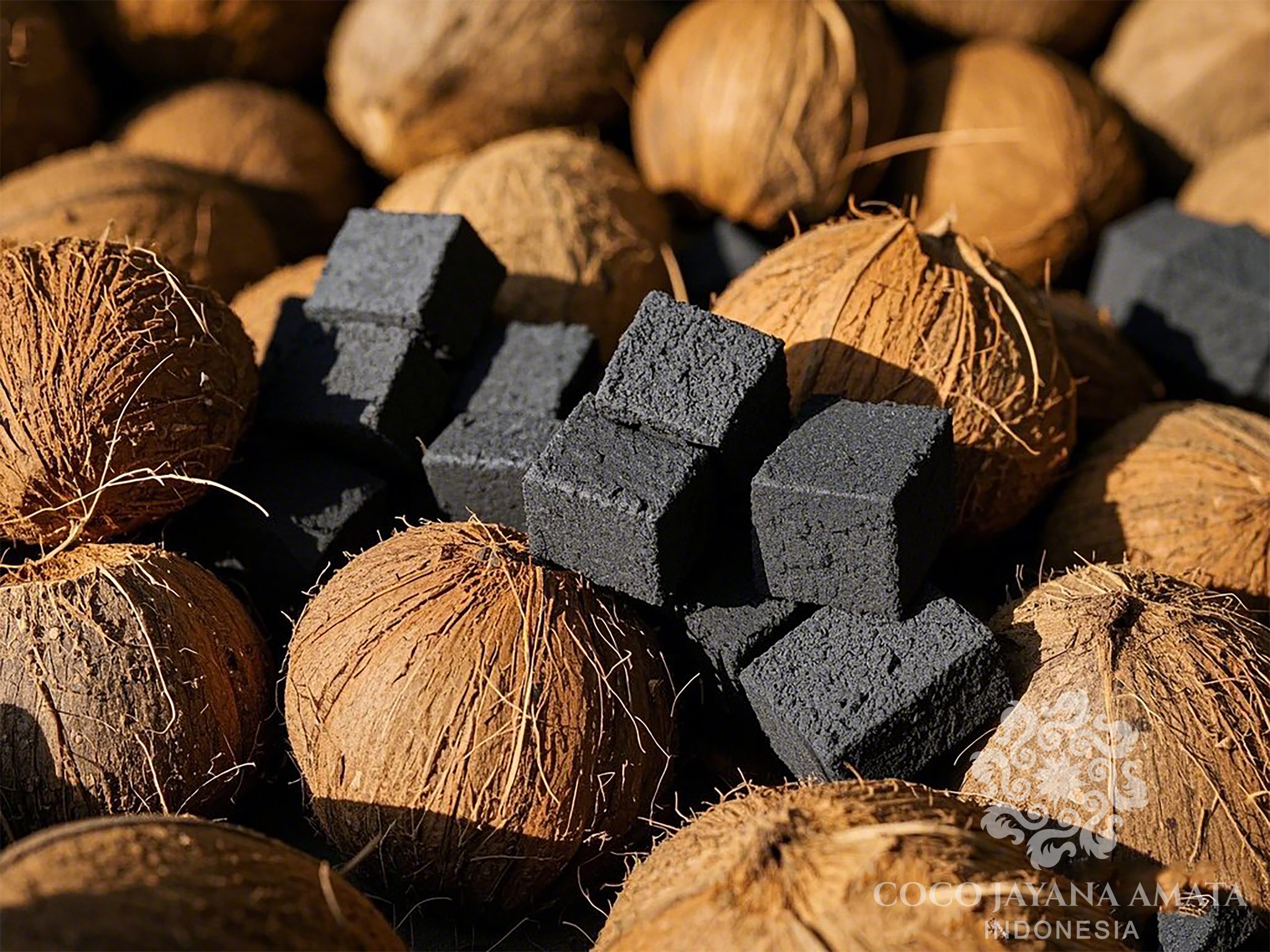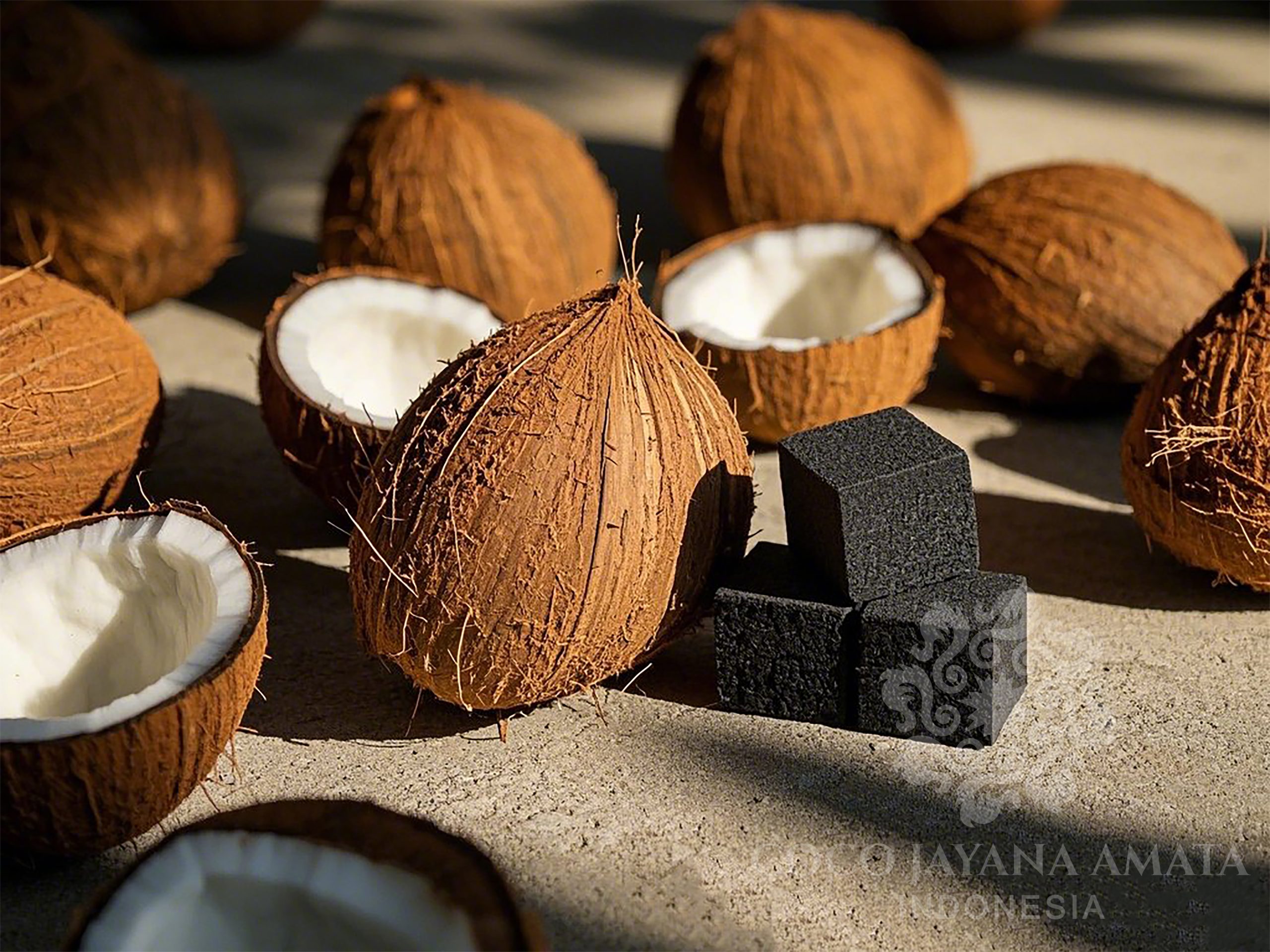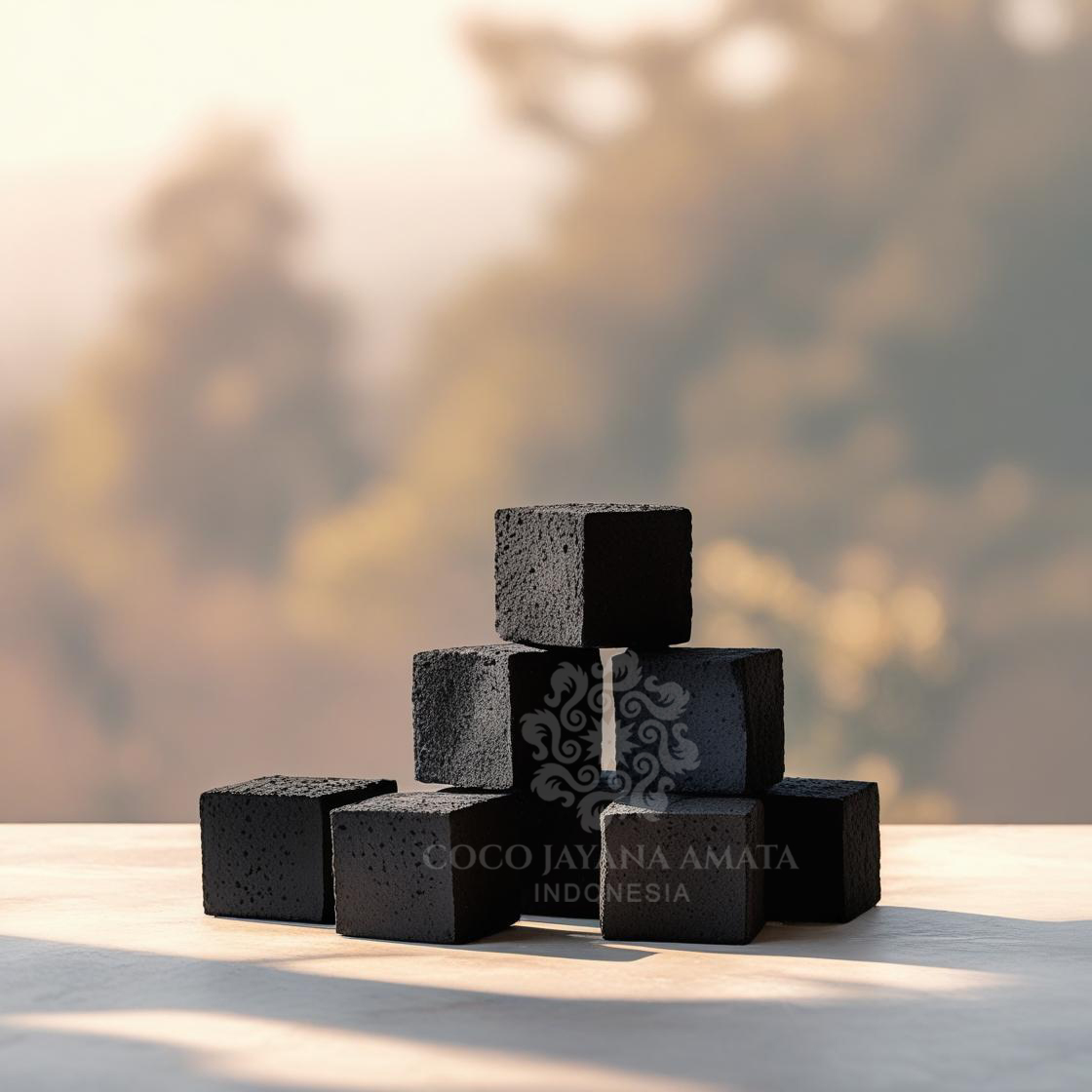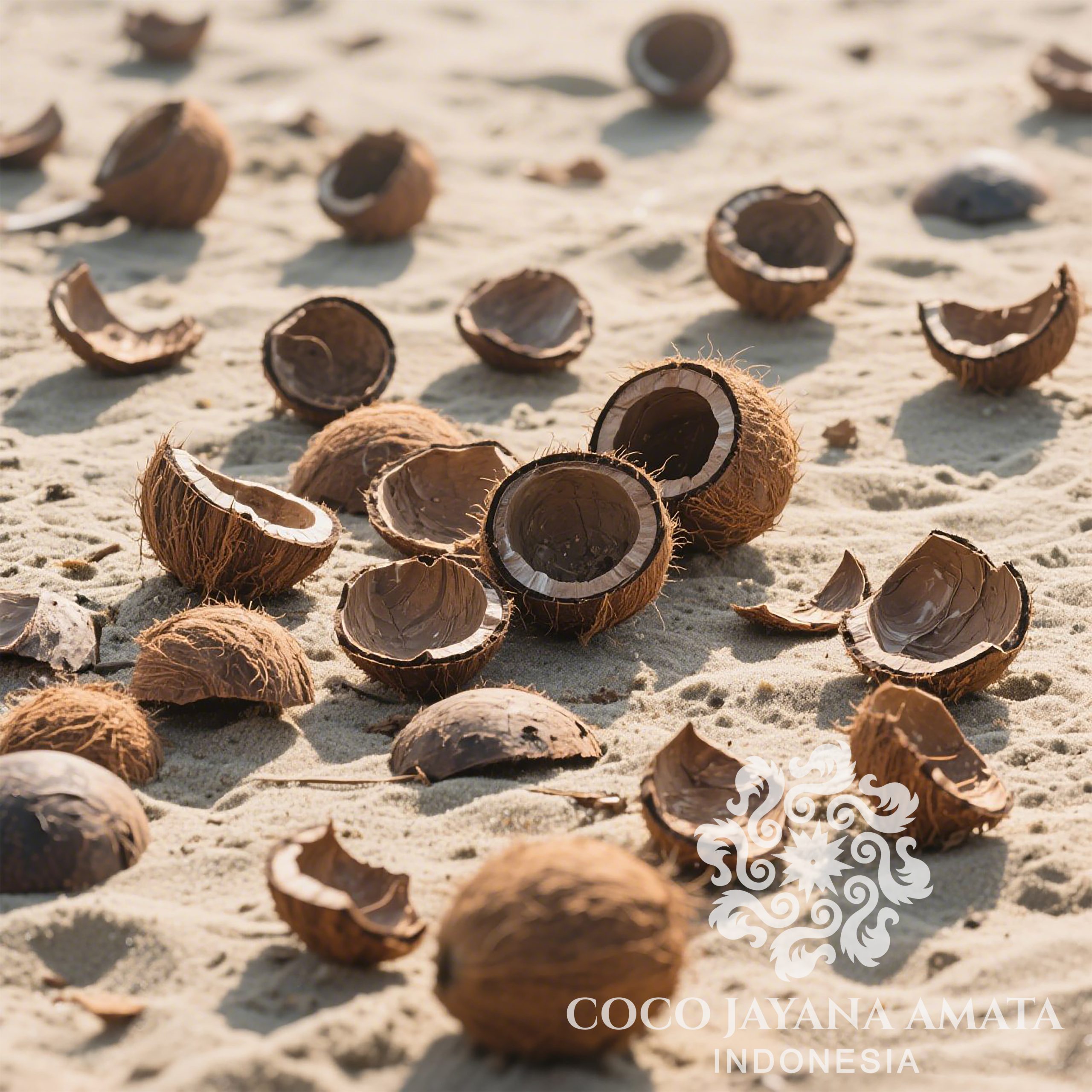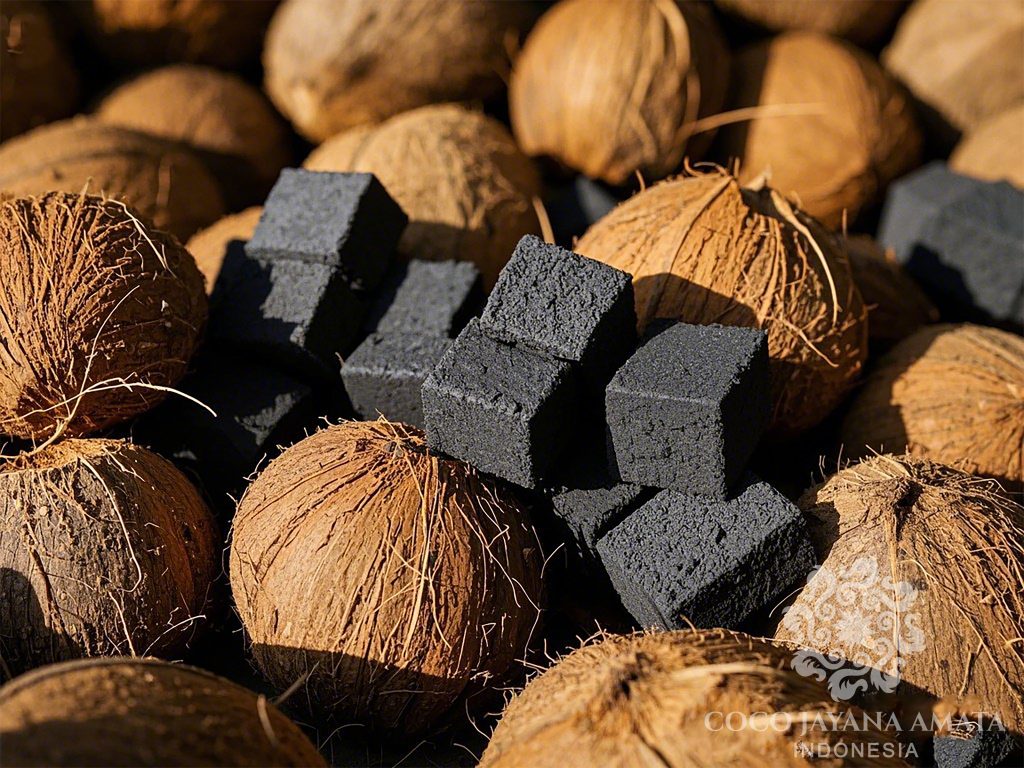
1. Ideal Tropical Climate
Indonesia’s position along the equator provides year-round sunshine, abundant rainfall, and fertile volcanic soil. This combination allows coconut trees to grow healthier and stronger, producing shells that are harder, denser, and richer in lignin compared to coconuts from other regions. These qualities directly improve the burning efficiency of the briquettes.
2. Superior Coconut Shell Density
Indonesian coconuts naturally have thicker and harder shells, which yield more durable charcoal. This results in briquettes that are longer lasting, with higher heat output and less tendency to crack or crumble during burning perfect for shisha sessions and BBQ grilling.
3. Sustainable Abundance
With over 17 million coconut trees spread across more than 17,000 islands, Indonesia is the world’s largest coconut producer. This abundance means a steady, sustainable supply of raw material without reliance on deforestation, ensuring that production can scale with global demand.
4. Traditional Expertise and Modern Innovation
Indonesia has a long history of coconut cultivation, and this cultural heritage is combine with modern charcoal production technology. Local producers have mastered the carbonization process, ensuring optimal temperature control that produces low-ash, odorless, and smokeless briquettes.
5. Natural Organic Farming
Many coconut plantations in Indonesia are grown organically, without intensive chemicals. This means the shells are clean and chemical-free, resulting in safer, more natural briquettes—important for health-conscious consumers and eco-friendly markets.
6. Global Reputation for Quality
For decades, Indonesian coconut products have been trusted in international markets. The consistency, quality control, and strict export standards of Indonesian coconut shell briquettes have built a reputation that competitors in other countries struggle to match.
By highlighting these natural and cultural advantages, you make it clear that it’s not just the briquette making process that makes Indonesia the best, but also the unique quality of Indonesian coconuts themselves.
